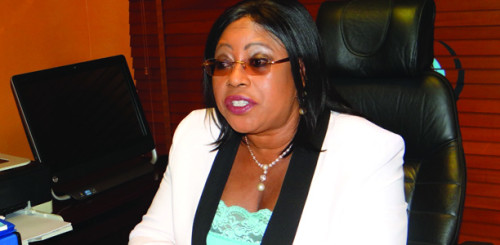
More than 10 years after the completion of Nigeria’s port reform programme, the concessionaires under the aegis of Seaport Terminal Operators Association of Nigeria STOAN, have made a strong case for the review of the entire concession agreement, including the Guaranteed Minimum Tonnage GMT.
The GMT is the projected minimum volume of cargo the concessionaires are expected to handle per annum, which would form the basis for the payment agreed fees and levies to the government through the Nigerian Ports Authority NPA, which include the lease fee and royalty, among others.
Chairman of the association, Princess (Dr) Vicky Haastrup, who spoke in an exclusive interview, noted that a downward review of the GMT was imperative to reflect the current situation of things in the country.
According to her, due to the policy summersault of the Federal Government, most of the dynamics that informed the projections for the GMT have all changed significantly, a development that necessitated an urgent downward review.
She said: “We look forward to a downward review of the GMT because most of the cargo that we put in our technical papers that were submitted to the government in the course of the programme and which we were handling then have currently been banned by the government”
Haastrup, who doubles as Executive Vice Chairman/CEO of ENL Consortium Limited, the concessionaire in charge of terminal C and D of the Lagos Ports Complex, Apapa noted that the importation of products such as cement have been banned while fertilizers and fish have been reduced drastically.
It was gathered that at inception, ENL was handling 1.5 million metric tonnes of cement per annum, which has been totally banned.
She disclosed that the terminal currently operates at less than 43 per cent installed capacity, as the cargo throughput has declined by more than 57 per cent, not because the company lacks the capacity but because of inconsistency of government policies.
The STOAN boss also said that despite the sharp drop in the volume of cargo, most of the container terminal operators and their general bulk counterparts, have fulfilled and have also exceeded their requirements in terms of development of their terminals as enshrined in the concession agreement.
While assessing the performance of NPA in terms of fulfilling its obligations in the agreement, Haastrup said that as much as she would not want to make excuses for NPA, like most other agencies of the government, the authority is being bugged down by government bureaucracies, which do not help port operations.
She cited the perennial late passage of the budget of the authority, which she said leads to delays in executing policies and programmes that would enhance port efficiency.
On the way forward, the ENL boss said that the government should grant the authority a measure of autonomy to enable it perform its duty efficiently with a view to enhancing efficient port system in the country.
Investigations showed that under the concession agreement, NPA is supposed to provide water, maintain common user facilities such as access roads and also provide electricity, which it has not been able to fulfill, as the terminal operators huge sums on procurement of generators and Automotive Gas Oil AGO, also called diesel.
Source: NationalMirror
